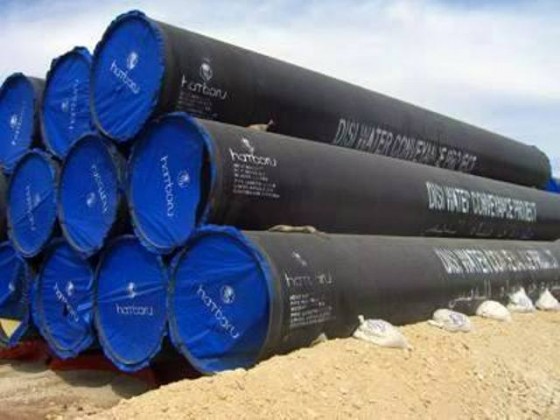 Until the well runs dry? Jordan’s Al-Disi Aquifer pipeline is only a temporary water solution
Until the well runs dry? Jordan’s Al-Disi Aquifer pipeline is only a temporary water solution
Jordan’s long planned water conveyance project to bring water from an underground aquifer near its border with Saudi Arabia is now closer to reality with the arrival of 200 km of pipeline from Turkey, according to a December 20 article in the Jordan Times. The 325 km pipeline, scheduled to be completed in 2013, is estimated to cost upwards to $1 billion, of which Jordan’s equity is $400 million. The remainder of the funding will come from The European Investment Bank and the French Development Agency who have extended two $100 million soft loans to the government for the project. Turkey is also said to be providing funding for the project, and construction will be undertaken by the Turkish firm GAMA and the British Halcrow Company.
The pipeline will bring water from water from the ancient aquifer to the capital Amman was first begun in 2009 and has experienced construction delays, which were later denied , and also considering other projects including building a desalination plant near Aqaba . Jordan is also planning its own version of the Red – Dead Sea water conveyance project, in which Jordan plans to “go it alone” without waiting for neighboring Israel to take part.
The al-Disi aquifer, most of which lies under Saudi Arabia, is estimated to be 325 km long, and is said to be “locked” within non-porous sandstone rock and not subject to recharging by rainfall. It is largely unknown how much water the aquifer contains or its archeological history.
What is known is that the water in the al-Disi is not rechargeable and is quite old (ie. 20,000-30,000 years old). This means it was created during a period when water resources were more plentiful in the region; possibly as a result of last Great Ice Age.
Initial delays in construction had been attributed to the relocation and reconstruction of roads, electricity and communication lines along the stretch between Amman and the Madaba bridge. A source at the Jordanian Ministry for Water and Irrigation said that “once the Amman-Madaba bridge section is completed, the pace of construction will accelerate.”
Since the amount of water in the al-Disi Aquifer is irreplaceable, and due to the fact that the largest portion lies under Saudi territory, the project has caused some friction between the Jordanian and Saudi governments.
Saudi Arabia is not exactly overflowing in natural fresh water reserves, and as a result most of its fresh water supplies is supplied by numerous desalination plants, including the world’s largest desalination plant in the Jubail II Industrial Zone.
In any event, even when the pipeline, with its several pumping stations is up and running the water from the al-Disi aquifer will eventually run out, and after so large an investment, Jordan will be back to “square one” regarding water resources; unless other projects are implemented, including desalination.
Read more on Jordan water issues:
Jordanian Water Pipeline Construction Starts
Jordanian Water Conservation Program Goes Straight to the Private Home
Increase in Water Theft in Jordan Has Broad Impact on the Middle East



